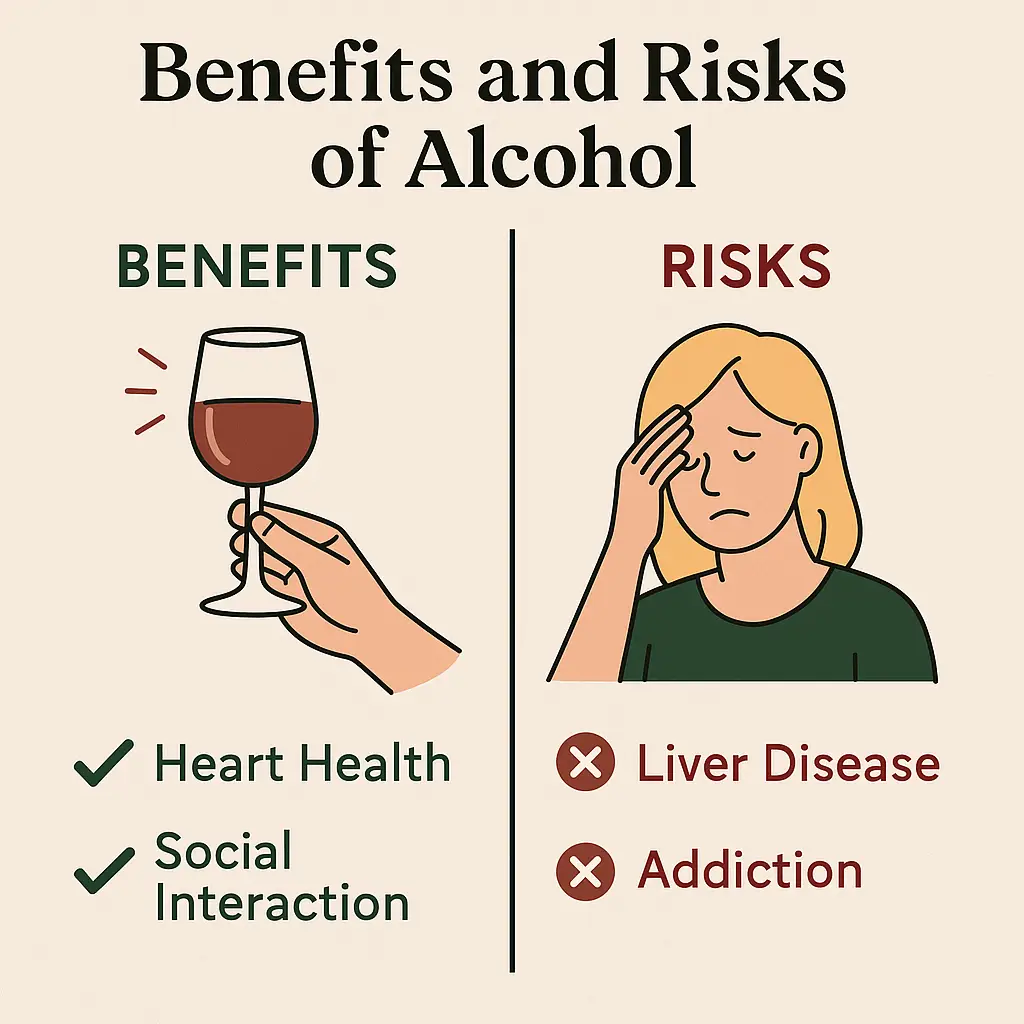The Pros and Cons of Alcohol Consumption: What You Need to Know

The Pros and Cons of Drinking Alcohol: What You Need to Know
Alcohol consumption is a common social practice worldwide. While moderate drinking may offer some potential health benefits, excessive or irresponsible consumption can lead to serious health risks. Understanding both the advantages and disadvantages of drinking alcohol can help you make informed decisions.

RELATED: The Incredible Health Benefits of Eating Fruits Daily
Benefits of Drinking Alcohol
When consumed responsibly and in moderation, alcohol may provide certain health benefits, including:
1. Improved Heart Health
Moderate consumption of alcohol, particularly red wine, has been linked to improved heart health. Red wine contains antioxidants like resveratrol, which may help reduce inflammation and lower the risk of heart disease by improving cholesterol levels and promoting healthy blood vessels.
2. Social Connection
Alcohol often plays a role in social gatherings, helping people relax and feel more comfortable in social settings. When consumed in moderation, it can enhance bonding experiences and foster stronger connections with others.
3. Potential Longevity Benefits
Studies suggest that moderate alcohol consumption may be associated with a longer lifespan. This is believed to be linked to improved cardiovascular health when paired with a balanced lifestyle.
4. Stress Reduction
Some individuals find that moderate alcohol consumption can help reduce stress or anxiety after a long day, promoting a sense of calmness.
Risks and Disadvantages of Drinking Alcohol
While there are potential benefits, drinking alcohol can also have serious negative effects, especially when consumed excessively.
1. Increased Risk of Addiction
Alcohol is highly addictive, and excessive drinking can lead to dependency and alcoholism. This can have serious consequences for personal relationships, careers, and overall mental well-being.
2. Liver Damage
Excessive alcohol consumption can cause severe liver conditions such as fatty liver, hepatitis, or cirrhosis. Over time, these conditions can result in permanent liver damage or failure.
3. Impaired Judgment and Coordination
Alcohol affects the brain, impairing judgment, coordination, and reaction time. This increases the risk of accidents, injuries, and dangerous behaviors such as drunk driving.
4. Increased Risk of Chronic Diseases
Heavy drinking is linked to numerous chronic illnesses, including high blood pressure, stroke, cancer, and digestive issues. It can also weaken the immune system, making the body more susceptible to infections.
5. Mental Health Challenges
While some drink to reduce stress, excessive consumption can contribute to depression, anxiety, and other mental health struggles. It may also disrupt sleep patterns, worsening emotional well-being.
Conclusion
Drinking alcohol can have both positive and negative effects on your health and lifestyle. The key to maximizing benefits while minimizing risks lies in moderation. For most adults, moderate drinking is defined as one drink per day for women and up to two drinks per day for men. Understanding your limits and making responsible choices can help you enjoy alcohol safely while protecting your overall well-being.



